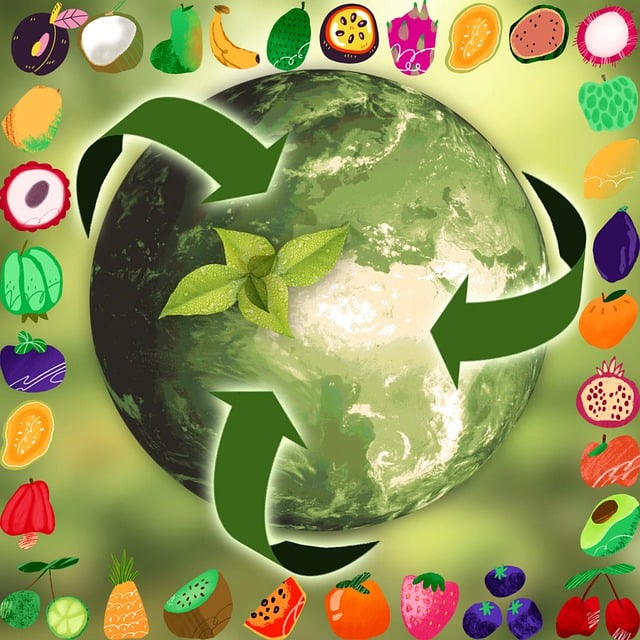The growing global demand for eco-friendly plumbing solutions reflects a commitment to environmental conservation. Key components include low-flow fixtures that reduce water usage, tankless heaters for efficient hot water on demand, and rainwater harvesting systems for reusable water sources. Green certification programs ensure products meet high environmental standards using sustainable materials and promoting energy efficiency. Smart monitoring technologies help track resource usage, enabling responsible management. Adopting certified eco-friendly plumbing options offers cost benefits, reduced environmental impact, and contributes to a more sustainable future.
Looking to reduce your environmental impact and lower utility bills? Choose green-certified plumbing products. In this guide, we explore essential elements of eco-friendly plumbing, from low-flow fixtures that conserve water to innovative tankless heaters and rainwater harvesting systems. We also delve into the importance of selecting sustainable materials and discuss the value of smart monitoring in achieving a truly green plumbing system.
- Understanding Eco-Friendly Plumbing: The Need for Green Certification
- Low-Flow Fixtures: A Simple Step Towards Water Conservation
- Tankless Heaters: Efficient Hot Water Solutions for Modern Homes
- Rainwater Harvesting: Capturing Nature's Resource for Sustainable Living
- Choosing Sustainable Materials: Eco-Conscious Options for Plumbing Components
Understanding Eco-Friendly Plumbing: The Need for Green Certification

In today’s world, the need for eco-friendly plumbing is more pressing than ever as we look to reduce our environmental impact and preserve resources for future generations. Eco-friendly plumbing encompasses a range of practices and products designed to minimize water consumption, reduce energy usage, and limit the use of harmful chemicals. This includes low-flow fixtures that conserve water without compromising performance, tankless heaters that provide hot water on demand, and innovative systems like rainwater harvesting that leverage natural resources.
The push towards green certification is a critical step in ensuring these plumbing products meet stringent environmental standards. Certification programs verify that products are indeed sustainable, incorporating sustainable materials and energy-efficient designs. Additionally, smart monitoring technologies allow users to track their water and energy usage, providing insights into areas for improvement and further promoting responsible resource management. By choosing certified green plumbing products, homeowners and businesses can actively contribute to a more sustainable future while also enjoying cost savings and reduced environmental footprints.
Low-Flow Fixtures: A Simple Step Towards Water Conservation

Low-flow fixtures are a simple yet effective step towards water conservation in your home. These innovative devices, such as low-flow showerheads and faucets, are designed to reduce water usage without compromising performance. By using advanced technologies like aeration or laminar flow, they deliver the same feeling of a strong spray while using significantly less water – often up to 60% less than traditional fixtures. This simple change can lead to substantial savings on your water bill and contribute to a greener environment.
Incorporating low-flow fixtures is just one aspect of adopting eco-friendly plumbing solutions. Other options include installing tankless heaters, which heat water on demand, eliminating the energy wasted by keeping a hot water tank constantly running. Additionally, rainwater harvesting systems can capture and reuse rainfall for tasks like gardening or flushing toilets, further reducing reliance on municipal water supplies. For a comprehensive approach, consider smart monitoring systems that provide real-time data on water usage, enabling you to identify leaks or inefficient areas and make informed decisions towards sustainability using sustainable materials throughout your plumbing system.
Tankless Heaters: Efficient Hot Water Solutions for Modern Homes

In today’s quest for eco-friendly plumbing solutions, tankless heaters stand out as modern and efficient hot water options. These innovative devices eliminate the need for traditional storage tanks, significantly reducing energy consumption and saving space. By heating water on demand, they offer a sustainable alternative to conventional systems, aligning with the growing preference for low-flow fixtures and smart monitoring technologies.
Tankless heaters are not only environmentally conscious but also cost-effective in the long run. They minimize water wastage, as they heat only what’s needed, when it’s needed. Moreover, integrating rainwater harvesting systems with these heaters can further enhance their eco-friendliness, providing a renewable source of hot water and contributing to overall home sustainability.
Rainwater Harvesting: Capturing Nature's Resource for Sustainable Living

Rainwater harvesting is an innovative and eco-friendly approach to plumbing that captures nature’s most abundant resource—rainwater—for sustainable living. By installing rainwater harvesting systems, homeowners can collect and store rainwater from rooftops for various purposes, such as irrigation, toilet flushing, and even washing. This not only reduces the strain on municipal water supplies but also lowers water bills significantly.
With the integration of smart monitoring technologies, these systems offer enhanced control and efficiency. Low-flow fixtures and tankless heaters further contribute to water conservation by minimizing water usage without compromising performance. The use of sustainable materials in rainwater harvesting components ensures that your plumbing practices align with environmental responsibility, making it a viable option for those looking to embrace green living.
Choosing Sustainable Materials: Eco-Conscious Options for Plumbing Components

When considering plumbing products, opting for sustainable materials is a significant step towards eco-conscious living. The market offers a range of green options designed to reduce environmental impact while still providing efficient performance. For instance, low-flow fixtures like faucets and showerheads use advanced technologies to conserve water without compromising user experience. Tankless heaters are another excellent choice, as they eliminate the energy waste associated with traditional storage tanks.
Rethinking rainwater harvesting can also be a game-changer for sustainable plumbing. By installing collection systems, you can harness nature’s resource for various purposes, from irrigation to toilet flushing. Moreover, incorporating smart monitoring tools allows for real-time tracking of water usage and potential leaks, enabling homeowners to make informed decisions and further reduce their environmental footprint.
